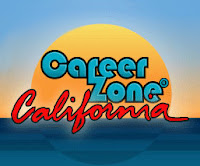Note: Don't print until we complete the "Myths" section.
Myth 1
- Myth: If I ____________ money to a friend or relative, I will be helping them.
- Truth: The relationship will be strained or ________ .
Myth 2
- Myth: By ______________ a loan, I am helping out a friend or relative.
- Truth: The bank requires a cosigner because the person isn't likely to ___________. Be ready to pay the loan and have your credit damaged.
Myth 3
- Myth: ___________ ____________, rent-to-own, title pawning, and tote-the-note lots are needed _______________ for lower income people to help them get ahead.
- Truth: These are horrible, greedy rip-offs that aren't needed and benefit no one but the owners of these companies.
Myth 4
- Myth: The ___________ and other forms of gambling will make me ____________.
- Truth: The lottery is a _______ on the poor and on the people who can't do math.
Note: Texas Tech University did a study on the Texas Lottery and found that people without a high school diploma spent an average of _________ a month playing the lottery. College graduates spent _________ a month on average. When studies are done on the lottery, it's always the lower-income ZIP codes that generate the highest revenue on sales.
Myth 5:
- Myth: ____________ payments are a way of life and you'll always have one.
- Truth: Staying away from car payments by driving reliable used cars is what the typical ____________ does. That is how they became millionaires.
Myth 6:
- Myth: ____________ your car is what sophisticated financial people do. You should always lease things that go down in value. There are tax advantages.
- Truth: Consumer Reports, Smart Money magazine and a good calculator will tell you that the car _______ is the most ________ way to finance and operate a vehicle.
Myth 7:
- Myth: You can get a good deal on a _____________ car.
- Truth: A new car loses _________ of its value in the first four years. This is the largest purchase most consumers make that goes down in value.
On average, a $28,000 car will be worth $8,400 in four years.Myth 8:
- Myth: I'll take out a 30-year mortgage and pay ______________.
- Truth: Life happens and something else will always seem more important. Never take out more than a _________ year fixed-rate mortgage.
Myth 9:
- Myth: It's wise to take out an ________ or a ___________ mortgage if "I know I'll be moving."
- Truth: You will be moving when they _______________.
The adjustable-rate mortgage is here to keep the _____________ from losing money. It transfers the ____________ of higher interest rates to you.
Myth 10:
- Myth: You need a __________ __________ to rent a car or make ____________ online or by phone.
- Truth: A __________ card does all of that.
Myth 11:
- Myth: I pay my __________ _______ off every month with no annual payment or fee. I get brownie points, air miles and a free hat.
- Truth: When you use cash instead of plastic, you spend ___________ less because spending cash hurts.
According to carddata.com, U.S. consumers racked up an estimated $51 billion worth of fast food on their personal credit and debit cards in 2006, compared to $33.2 billion one year ago.
Myth 12:
- Myth: I'll make sure my ___________ gets a credit card so he or she can learn to be responsible with money.
- Truth: Teens are a huge ___________ of credit card companies today.
As soon as you get to college, you will receive offers from credit card companies. About 80% of college graduates have credit card debt before they even get a job.
Myth 13:
- Myth: The home equity loan is good for __________ and is a substitute for the emergency fund.
- Truth: You don't go into ____________ for emergencies.
Myth 14:
- Myth: Debt _____________ saves interest and you get a smaller ________________.
- Truth: Debt consolidation is a _______________.
Debt consolidation saves little or no _______________ because you will throw your low interest loans into the deal.
You cannot ____________ your way out of debt! _____________ payments equal more _________ in debt.
Myth 15:
- Myth: Debt is a _________________. It should be used to create prosperity.
- Truth: The _______________ is slave to the lender.
When surveyed, the Forbes 400 were asked, "What is the most important key to building wealth?" _____________ replied that becoming and staying ________ free was the number one key to wealth building.





